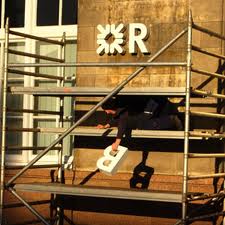The collapse of RBS, part 1: how it felt from the inside.
When the financial crisis brought down the Royal Bank of Scotland in 2008 I was a Senior Manager in the Group’s Shared Service, Finance department. In Shared Services we were responsible for a range of activities across the Group focused on the measurement and reporting of all aspects of the Group balance sheet and profit and loss accounts as well as a wide range of management reporting. It was our department that had to report how healthy, or otherwise, things looked.
That summer, as the crisis unfolded, it gradually became clear that RBS Group was one of the large banking organisations in which the markets were losing confidence. It was becoming harder and harder for the Group Treasury teams responsible for raising the money every day to meet short term liabilities to find the cash required. They asked us for some new reports detailing exactly how much was likely to be needed at the end of every day and exactly how much was readily at hand so they knew precisely how much they needed to raise as early as possible.
My job was running the “Systems Strategy” team and I had working for me a number of the people with the most complete knowledge of the complexities of the range of systems in which the horribly complicated picture of all the various flows of money into, across and out of the Group were recorded and described. They were all working flat out to report and predict these flows in the weeks preceding the final collapse (which in all honestly was what happened to RBSG, it collapsed completely and was immediately resuscitated and put back on its feet by the government).
The week the money actually ran out I was out of my office in Edinburgh. Among my duties was delivering training to accountants who joined the Group from outside the world of banking. (Of whom there were always plenty, since at that time the Group employed in the region of 5,000 qualified accountants). We felt they needed at least a reasonable grasp of the peculiarities of banking to do their various jobs properly so a number of Senior Managers took it in turns to deliver a 3 day course called “Banking for Finance” to groups of these people. That week I was in Dublin running it for a group of people in Ulster Bank (which was headquartered in that city).
For that reason I missed being present when the reports showed clearly that at close of business there would be insufficient funds in the Group’s settlement account at the Bank of England to meet the liabilities falling due, that RBS would not be able to pay the money it owed. This was a moment of rich drama. My boss’ boss was on the conference call where the news was broken to Sir Fred, as he told me in the queue at one of our on-site Starbucks the following week. Everyone knew that under those circumstances the only course of action left was to go to the Treasury with a begging bowl, something that was bound to be deeply unpleasant for our CEO and likely to cost him his job.
Indeed that was what happened. This conversation had been planned and rehearsed on both sides, since all those in the know knew for weeks beforehand that there was a real possibility that what had happened to a series of other banks, starting with Northern Rock and catastrophically including Lehman Brother could quite conceivably befall RBS, then one of the largest banks in the world. The government team had decided that part of the price of the loan (which was what it then was, the investment of capital came later) would be Sir (as he then was) Fred’s departure. He, by this time, had no option but to accept the terms, since the alternative was the disorderly collapse of the business.
That weekend Pam, Jess and I were at Gogarburn (the HQ campus) on the Sunday afternoon, to use the lovely on-site swimming pool. The October sun was shining on the beautifully landscaped grounds and we went for a walk along the burn, which took us past the executive wing, where Sir Fred and his immediate team had their offices. There was an eerie quiet about the place. Normally, even on a Sunday there would be some activity but no-one was there that day. They were all in London dealing with the fall-out.
In the next issue of the News I will try to explain how the disaster came about and what it tells us about the nature of money, of banking, and of capitalist economies. The third part of this series will look at the theological implications of all of this.


Hi, I’m glad you liked my picture enough to use it, but can you please credit pictures when you use them? Thanks.